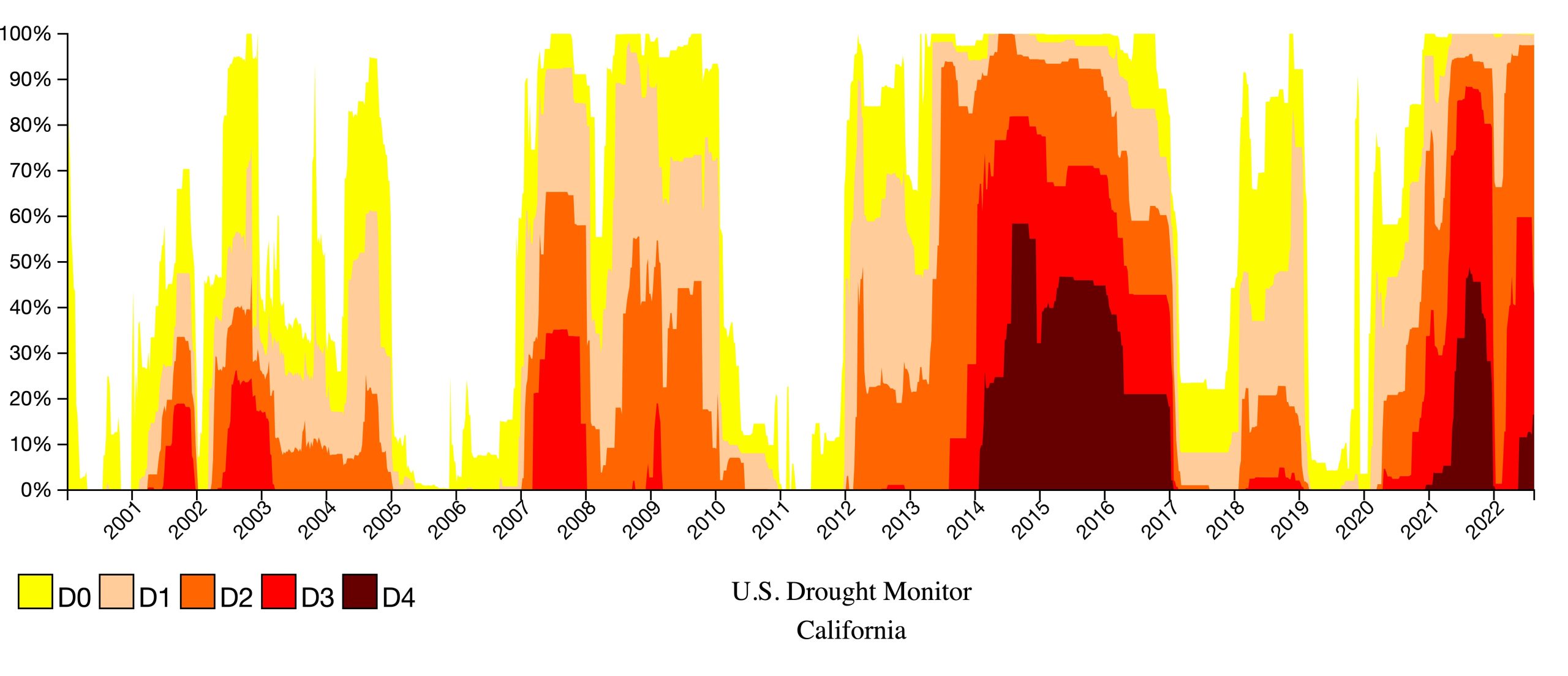In the state of California, and indeed much of the Western United States, severe drought is threatening the lives and livelihoods of millions of people.
In Los Angeles, 97 percent of the massive city is in a state of “severe drought,” according to the measurements on Drought.gov.
Because of that fact, there are currently restrictions in place that are meant to control how much water residents of the city can use per month. Perhaps unsurprisingly, a lot of celebrities have now been outed for ignoring those restrictions and dramatically overusing water. Miami Heat legend Dwyane Wade is unfortunately one such celebrity.
“Among the addresses that received notices was an $18-million Hidden Hills property, listed under the name of former NBA star Wade, that exceeded its allocated water budget in June by more than 1,400%, or 90,000 gallons,” wrote Hayley Smith and Sean Greene of the Los Angeles Times. “That was an improvement over May, when the property exceeded its budget by 489,000 gallons — more than any other customer.
“Wade and his wife, actor Gabrielle Union, attributed the excess use at their property to a problem with their pool. In a statement, the couple said they have ‘taken drastic steps to reduce water usage in accordance with the new city guidelines and have since we moved into our home.’”
It is great to see that Wade and Union seem to be taking the issue seriously. After all, overwatering residential areas does not just impact the local area.
California is one of the most important agricultural centers in the world, and the current drought in the state is impacting farmers’ abilitites to grow crucial crops.
According to Yoohyun Jung of the San Francisco Chronicle, more farmland in the state is being left unplanted due to the current state of water access. When it comes to climate change and ongoing droughts, one of the key concerns that experts have revolves around how those factors will impact access to food.
Though celebrities like Wade are not to blame for the overall issues facing the state, there is certainly a need for everyone to buy into the water conservation plan to try to make do with the current situation.
Surprisingly, the current severe drought in the state is not the most severe drought in recent memory. The drought spanning from 2014 to 2017 was quite a bit longer than the current one.
Still, with no end in sight, it will be fascinating to see if any other restrictions are handed down to try to conserve what water is left.
With summer turning to fall in the coming weeks, there is a glimmer of hope that the state of California will enjoy a wet winter. Scientists, farmers and residents alike will surely be looking at snowpack levels in the Sierra Nevada mountain range once the season changes and temperatures start to turn.









